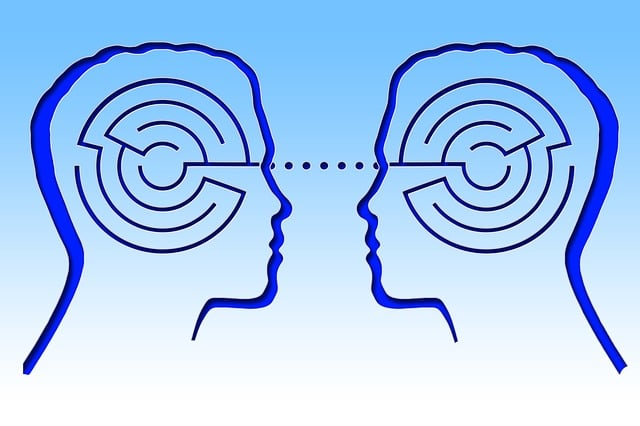The Endocannabinoid System (ECS) is a complex physiological regulator vital for maintaining emotional and physical equilibrium, influencing mood, memory, appetite, and pain perception. By interacting with exogenous cannabinoids like THC and CBD from cannabis, the ECS offers insights into therapeutic potential and side effects. Understanding the ECS is key to exploring new treatments for depression and anxiety through modulation of receptors CB1 and CB2, and dietary changes that impact endocannabinoid levels. This personalized approach holds promise for improving emotional well-being and managing mood disorders effectively.
The endocannabinoid system (ECS) plays a pivotal role in regulating our mood, emotions, and overall mental well-being. This complex biological system, comprised of endocannabinoids, receptors, and enzymes, is a key target for understanding and addressing mood disorders. By exploring the intricate relationship between stress, diet, and the ECS, this article delves into the latest research revealing its potential as a therapeutic frontier. Unraveling the mysteries of the ECS offers promising paths to enhancing emotional balance and treating mood-related conditions.
What is the Endocannabinoid System?

The Endocannabinoid System (ECS) is a complex physiological system involved in regulating various bodily functions, including mood, memory, appetite, and pain perception. It plays a crucial role in maintaining homeostasis, ensuring optimal balance within the body. The ECS consists of endocannabinoids, which are endogenous compounds that bind to specific receptors, and the enzymes responsible for their synthesis and degradation.
Understanding the Endocannabinoid System is essential as it provides insights into how cannabis and cannabinoids interact with our bodies. Cannabinoids, like tetrahydrocannabinol (THC) and cannabidiol (CBD), mimic endocannabinoids by binding to these receptors, influencing mood and other neurological processes. This interaction highlights the potential therapeutic benefits and side effects associated with cannabis use, contributing to our knowledge of mood influence on a cellular level.
The Role of Endocannabinoids in Regulating Mood

The Endocannabinoid System (ECS) plays a crucial role in regulating mood, emotion, and mental health. It’s a complex biological system that helps maintain homeostasis within the body, including emotional balance. This system is comprised of endocannabinoids (eCBs), receptors located throughout the brain and body, and enzymes that produce and degrade eCBs. One key eCB, anandamide, has been linked to feelings of pleasure, relaxation, and well-being. When released, anandamide binds to its receptors in various regions of the brain, influencing mood, appetite, memory, and pain perception.
Dysregulation of the ECS has been associated with mood disorders like depression and anxiety. Imbalances in eCB levels or receptor function can disrupt emotional regulation, leading to symptoms of distress. Understanding the ECS is essential for exploring potential therapeutic interventions. Research suggests that targeting this system could offer novel approaches to managing mood disorders, highlighting the significance of delving into the complex world of endocannabinoids in the pursuit of improved mental health.
How Stress and Mood Affect ECS Function

The intricate Endocannabinoid System (ECS) plays a pivotal role in maintaining emotional and physiological balance within our bodies. When stress or mood alterations occur, the ECS becomes a key player in how we respond and recover. Stress can trigger the release of endocannabinoids, which are neurotransmitters that bind to receptors in various parts of the brain and body. This activation influences several processes, including memory, appetite, pain perception, and immune function.
A positive or negative emotional state can impact the efficiency of the ECS. For instance, chronic stress, often characterized by prolonged exposure to stressful situations, can lead to desensitization of cannabinoid receptors. Over time, this may result in an impaired ability of the ECS to regulate mood and other physiological processes. Understanding these interactions is essential for comprehending how our mental state influences overall health and highlights potential avenues for interventions aimed at enhancing well-being.
Understanding Cannabinoid Receptors and Their Impact on Emotion

The human body has an intricate system known as the endocannabinoid system (ECS), which plays a significant role in maintaining homeostasis, including emotional balance. This system is comprised of endocannabinoids, receptors, and enzymes that work together to regulate various physiological processes. One of its primary functions is modulating mood, appetite, memory, and pain perception. Cannabinoid receptors, specifically CB1 and CB2, are located in different areas of the brain and body, respectively. These receptors bind with cannabinoids, such as those found in cannabis, which can influence neurotransmitter release and neuronal activity, ultimately affecting emotional states.
CB1 receptors, abundant in the brain, are linked to cognitive functions and emotional responses. Activating these receptors through cannabis consumption or endocannabinoid production can induce feelings of euphoria, relaxation, or even heightened anxiety, depending on individual variations. On the other hand, CB2 receptors, primarily found in immune cells, have been associated with their anti-inflammatory properties, which may indirectly impact mood by reducing stress and inflammation’s negative effects on brain health. Understanding this intricate relationship between cannabinoid receptors and emotions provides valuable insights into the complex interplay between our bodies and minds.
The Connection Between Diet, ECS, and Mood Disorders

Our diet plays a surprising role in regulating our mood, with a growing body of research highlighting the intricate connection between what we eat and our emotional well-being. This relationship is partially mediated by the endocannabinoid system (ECS), a complex signaling network within our bodies that helps maintain balance—or homeostasis—in various physiological processes, including mood regulation.
The ECS is involved in processing emotions, appetite control, memory formation, and stress response. Understanding the endocannabinoid system is crucial here because it explains how dietary choices can influence our mental state. For instance, foods rich in omega-3 fatty acids, antioxidants, and certain vitamins have been shown to support ECS function, potentially improving mood and reducing symptoms of disorders like depression and anxiety. Conversely, diets high in processed foods, sugar, and unhealthy fats may disrupt the ECS balance, leading to mood alterations and contributing to the development or exacerbation of mood disorders.
Potential Therapeutic Approaches for Mood Enhancement via ECS Modulation

The Endocannabinoid System (ECS) plays a pivotal role in regulating various physiological processes, including mood and emotional responses. Given its intricate involvement, understanding the ECS offers promising avenues for therapeutic interventions aimed at enhancing mood. Modulating the ECS has shown potential as a strategy to alleviate mood disorders such as depression and anxiety. One approach involves targeting endocannabinoid receptors, specifically CB1 and CB2, which are widespread in brain regions associated with emotion regulation. By introducing agonists or partial agonists that interact with these receptors, it may be possible to restore balance within the ECS, thereby improving mood and emotional well-being.
Additionally, research suggests that enhancing endocannabinoid synthesis could be another effective strategy. This can be achieved through various means, such as dietary interventions (e.g., consuming foods rich in omega-3 fatty acids) or pharmacological agents that upregulate the expression of enzymes involved in endocannabinoid biosynthesis. These approaches aim to increase the availability of endogenous cannabinoids like anandamide and 2-AG, which are known to modulate mood and play a role in stress response. This modulation has shown promise in preclinical studies, indicating that manipulating the ECS could be a game-changer in developing novel therapeutic approaches for improving mental health.
Future Research Directions: Decoding the Complex Relationship Between Mood and the Endocannabinoid System

As research continues to unravel the intricate connections between mood and brain function, exploring the endocannabinoid system (ECS) emerges as a promising avenue for future investigations. The ECS, with its central role in regulating various physiological processes, including emotion and mood, holds significant potential as a therapeutic target. Future studies could delve into the specific mechanisms linking mood disorders to dysregulation of the ECS, offering valuable insights into the development of novel treatments. Understanding how endocannabinoids interact with neurotransmitters involved in mood regulation, such as serotonin and dopamine, will be key to decoding this complex relationship.
Additionally, investigating the impact of individual differences in ECS activity on emotional responses could provide a personalized approach to mental health treatment. By unraveling these complexities, researchers may uncover unique therapeutic opportunities, such as the development of targeted medications or interventions that modulate the ECS to effectively manage mood-related disorders. This burgeoning field of research promises to deepen our understanding of the endocannabinoid system and its pivotal role in shaping our emotional landscape.
